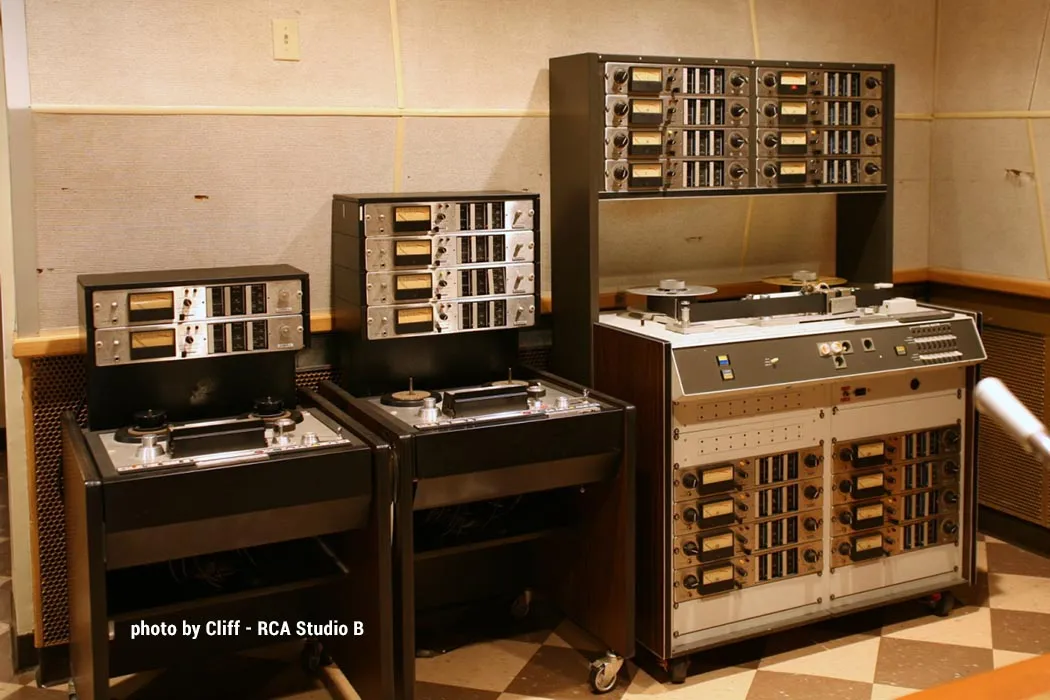If you’re new to recording you may not know the advantages of tracking
It’s always great to know the recording jargon and where it comes from. So what is tracking?
The term “tracking” is tossed around a lot when talking about recordings. To make it really simple, “tracking” is basically another word for recording.
The term “tracking” in recording circles comes from muli-track recording. In multi-track recording, different microphones or sources are recorded to independent tracks. So “tracking” essentially means: recording onto a track.
A “recording” session refers to the overall act of getting a song recoded. That includes all the instruments and vocals. A “tracking” session typically refers to recording one instrument, such as vocals.
“Let’s track the vocals” – would be referring to only recording vocals.
Where did the term tracking come from?
The original multi-track recordings were gigantic analog, tape-based machines. To record multiple tracks on a single piece of tape, different inputs were transferred magnetically to the tape in tracks.
1″ tape may be separated into 4 or 8 tracks, each a fraction of the tape’s width. 24 track machines were often recorded on 2″ tape.
When to use tracking vs. recording
So now you know the term tracking and where it came from. Let’s look at how to apply it.
If someone wants you to record vocals for a song it would be appropriate to use the term “track vocals” or “tracking vocals”.
If someone wants you to record a song, implying there are other musicians or that you may be playing instruments, not just singing, then it would be more appropriate to say “recording” or “recording session”. But when you’re recording any of the those instruments on their own during that recording session you could say “tracking vocal”, or “tracking drums”.
If you’re recording in a live situation, generally the term “tracking” is never used. Why? Because the instruments are not being recorded on their own at different times. However, if after a live recording session you were going to re-record some vocals, that can be a called a “tracking session”.
Kevin Alexander

Kevin Alexander is CEO and co-founder of Singdaptive, bringing his past experience as CEO of the singing technology company TC-Helicon, as well as live sound, recording and love of music. Recently, he has been a university instructor in Multimedia Learning and is helping to envision an exciting future with technology at the research firm Kinsol.io
